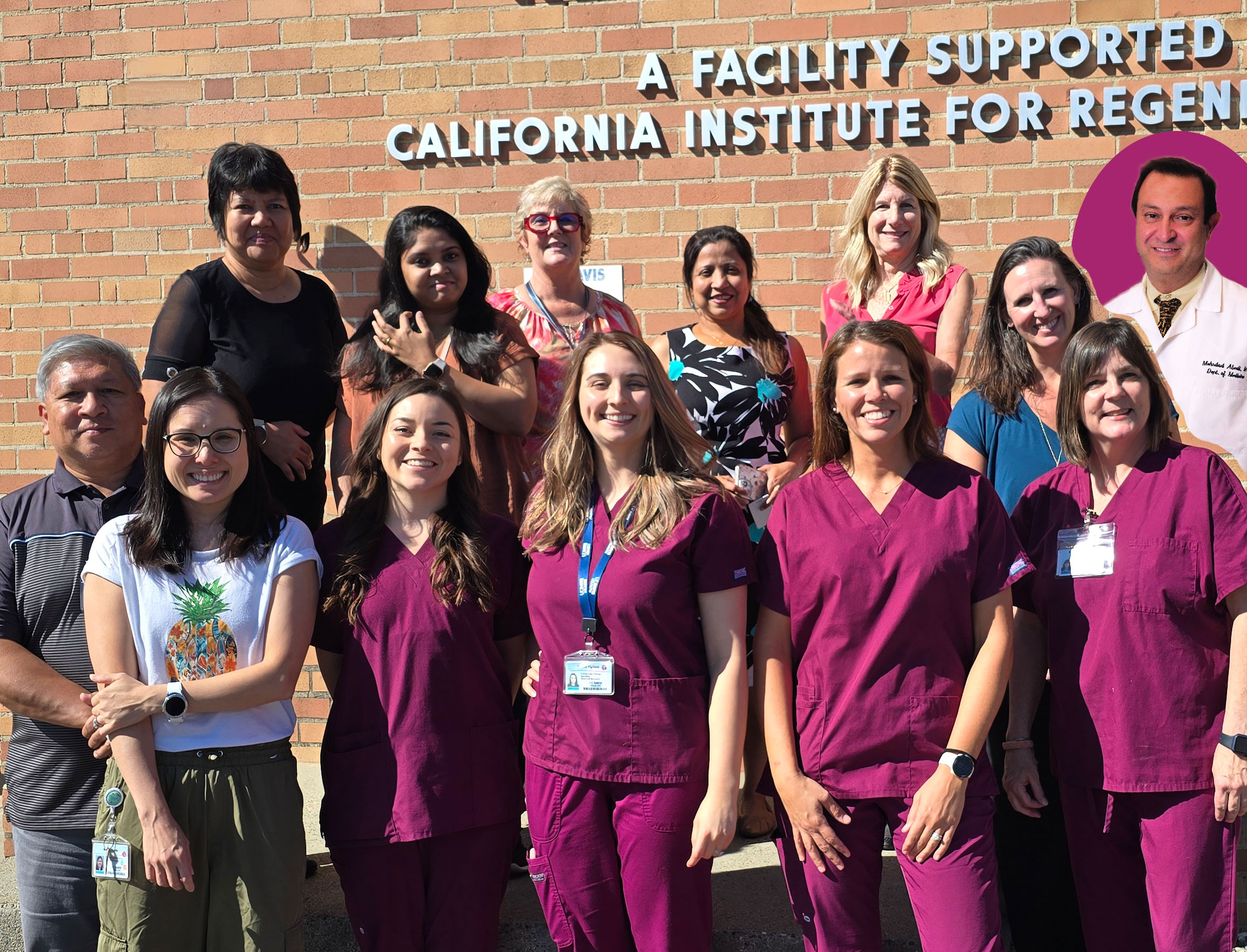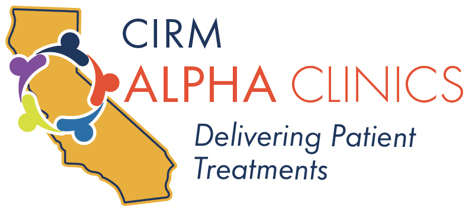CIRM Alpha Clinic at UC Davis Health

The CIRM-funded Alpha Clinics are a network of top California medical centers. The Network specializes in delivering stem cell clinical trials to patients. The key to the Network’s success is the ability to accelerate the delivery treatments to patients through partnerships with patients, medical providers and clinical trial sponsors. These partnerships enable:
- Patient-centered clinical trials with the highest standards of care and research
- Strategic collaboration with academic and industry teams developing innovative stem cell therapies
- Leveraging of resources to promote efficiency, acceleration and increased chances of success
EVENTS
HIGHLIGHTED CLINICAL TRIALS
TRX103-02
A Phase 1/2a, Open Label, Dose Escalation Study to Evaluate the Safety and Preliminary Efficacy of TRX103 in Subjects with Moderate to Severe Treatment-Refractory Crohn's Disease
Contact: Jackson Taylor | 916-704-0342
EBUS22CD19AR100
An Open-Label, Dose Escalation, Multi-Center Phase I/II Clinical Trial of EB103 T-Cell Therapy in Adults with Relapsed/Refractory (R/R) B-Cell Non-Hodgkin's Lymphoma (NHL)
Contact: Richard “RJ” Joven | 916-494-2368
CK-0804-101-1
Phase Ib, Open-label Study of Add on Therapy With CK0804 in Participants With Myelofibrosis, With Suboptimal Response to Ruxolitinib
Contact: Sylwia Blawat | 916-402-7182
Visit CIRM's website list of all clinical trials. | Questions? Write AlphaClinic@health.ucdavis.edu.
The promise of cell and gene therapies is being realized as new products emerge to treat diseases once considered intractable. These treatments are emerging amidst reports of patients being injured by unproven “stem cell” interventions. At this juncture, it is vital to be supporting the continued development of promising regenerative medicine products while protecting patients from the risks posed by unproven interventions. Various stakeholders including governments, patient groups, medical societies, and the media are committed to this outcome. In this perspective, we draw on our experience gained from partnerships in developing regenerative medicine products to identify technical, organizational, and ethical benchmarks for the responsible delivery of regenerative medicine treatments. These benchmarks may serve as the basis for policy interventions intended to drive the responsible delivery of stem cell and regenerative medicine products. Our particular focus is California‐based policy, but the suggested benchmarks are broadly applicable to national and international jurisdictions.

